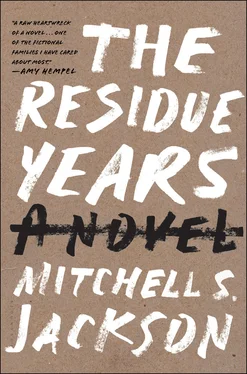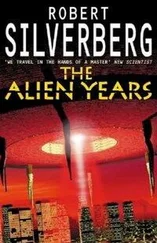No one else says another word.
Quiet or no quiet, how I feel about most of them most days, especially the rare ones when I’m carrying a package with my books and papers, how I feel those days especially, is these suckers would be ecstatic if they saw me arrested. Oh, the dreams I’ve had, the nightmares of officers raiding my class, clapping me in cuffs, and parading me to a car parked conspicuous as shit in the Park Blocks, horrors of these squares blabbing to some local reporter how they always thought me up to no good, the vision of my suckerfied classroom nemeses running his weak script for all the world: People commit crimes, criminals go to jail. Simple!
Haskins yanks his hella-cinched slacks well above his hip bones. He calls on the next speaker and the next — one speech on recycling, another on organ donors, both of which real talk might’ve been better than mine. Haskins asks at the end of class if I’m keeping my appointment, and I know I should say no, but why, this moment, do I feel as though I can’t. He packs a vintage shoulder bag and we leave while the next class files in. His office is in another building, and I drag a step behind him the whole way there. Haskins offers me a seat on a green tweed couch, retacks the Who Will Survive America poster that’s come loose at one end, shelves a stack of books from his desk.
Your speech, he says. It was strong. You could tell by their response.
But I don’t think they got it, he says.
Sometimes it’s not what they think, but if they think, he says.
Haskins leans back in his seat, clasps his hands behind his head. So what’re your postgrad plans? Grad school, I hope.
Grad school, I say. No plans for that.
Well that’s disappointing, he says. Is this a certainty? You’d do great in political science.
You mean politics? I say.
Yes, politics, he says.
Oh no, I say. Politics aren’t for us.
Wrong, he says. He takes off his specs, rubs the bridge of his nose. Politics are especially for us. Give it some thought before you dismiss it.
Haskins swivels to face his crowded bookcase, plucks a dusty hardcover off a shelf, shoves it at me. These are some of the greatest speeches of the century, he says. Go ahead and take a look. I think you’ll like it.
Will give it a read, sir, I say. But I’m pretty set.
Give some thought, he says. The program is two years. Trust me, time will pass no matter. You might as well do something with it.
Careful not to open my bag too wide (the stench would be tough to explain), I stuff the book inside and quick-fast zip it shut.
When I leave, there’s a cluster of students wearing shirts and ties with buttons pinned to their chests campaigning for the school election. I push past a flyer-bearing future politician (me one of them?) onto Broadway, stopping by the phone booth (it beats a cell for business 24/7) under the sky bridge to call back a lick. My guy says he’s on his way down. He wants a few zips which won’t buy no mansions, but ain’t nothing to scoff at neither.
Every campus has them, self-aggrandizing weed men. Around here it’s the anarchistic muralized white boys who hock the nickel bags, twenty sacks, and eighths of green to the school’s ubiquitous weed hypes. Got to admit they make me jealous too, cause though the money’s less, unless they get greedy or hella-reckless, they can semi-stealth their business sine die, no troubles.
But there ain’t no charitable apathy nor no promo for this illicit shit. Anyone vending what I vend best keep it to themselves. Which I do. You won’t catch me selling to anyone affiliated on any level with this fine, fine institution. But just because I don’t serve the student body, staff, or faculty don’t mean the campus is off-limits for business. Believe you me, there is no safer place for this than here. The Bias Effect. Tough to count the days my backpack’s freighted with more than books, with what’s a sure trigger for a federal charge. Shit, if the Feds emptied my bag today, if they found what’s sealed off in clear plastic, I’d be knee-deep in middle age when I paroled.
Farther up, I find an empty bench between buildings and wait for my lick. I crack the book from Haskins, but can’t focus for shit with this sack in my bag, with the automatic doors opening, with the pitter-patter of people walking past, the schwock of a tennis match, with the boom of the bearded man still ranting from his overturned bucket.
You mind? A guy asks me for a spot on the bench and I make space. He’s carrying a leather briefcase and wears a beta-male blue suit. He asks if I’m a student and I nod, push my face in the pages, but eye him from my peripheral. He covers his face and sighs. He takes his hands off his face and rakes his hair. He picks up his briefcase and lays it across his lap and thumps what could be Morse code for backup. I get up, grab my pungent, freighted backpack, and scuttle the fuck off.
Am I, paranoid? Hell yeah! But check it, the moment right after you stop being noid is the moment you should make sure your people ain’t blocked collect calls from lockdown.
… they’ll see for themselves.
— Grace
One or the other, cause it can’t be both. The football or the basketball. Either will put a dent in my so-called savings. The itty-bitty money I’m socking away for when these people let me off their papers — and they will. I choose the Spalding and buy a pack of needles and a hand pump, at prices that leave me with too little to mention, so I won’t mention it. There’s a boy that’s more or less between my firstborn and my middle boy dipped over a station and listening to headphones loud as bullhorns. The boy’s holding a CD with a cover that shows a guy wearing a suit and scarf and fedora with his head tipped low. The boy closes his eyes and snaps his neck back and forth. The next song that plays samples an old soul favorite of mine, and I listen until as a mother I can’t anymore. I tap the boy and he snatches off his speakers. I ask him to suggest an album that’s a bit less explicit. He bops down to another shelf and picks a colorful CD off the rack. This one, he says.
I buy the CD and the Spalding and straggle out the automatic doors with my purchase double-bagged and my previous few dollars fewer. As soon as I get outside, the cold snakes inside me. I’ll have to wait until the paycheck after next for a coat that puts up more fight. Payday is Friday, next Friday, but it’s also the week my court fines are due. Traffic plods along. A hard wind whips up my leg.
This is how it is until the bus comes. The driver is a young woman. I find a seat, but move for a guy who cracks his window in this cold. It’s a long ride to my transfer. I wait under a covered stop for my next bus. There’s a pay phone inside the stop that keeps ejecting coins. The bus rumbles up I-5 and across the bridge and off on the city center and into the bus depot. The depot’s surrounded by pawnshops, old brick buildings, slant parking spots, parking meters made of copper. The last bus carries me across the city. Vancouver, Washington, VW, is lush and unlittered and no one needs to be anywhere fast. I get off and slog what passes for a busy street carrying bags — a heft. Kenny lives in a subdivision, rows of new homes painted tan or blue or gray, homes with double-car garages and neat piles of leaves in the yard — this is the other side of living check-to-check.
If he’d told me about this place — his tongue has never been a conduit for the truth — I would’ve called him a bald-faced lie.
The address he gave me has a big picture window with its curtains drawn apart, fluffy upholstered couches, a glass table, an oil painting of a bowl of fruit.
Читать дальше












